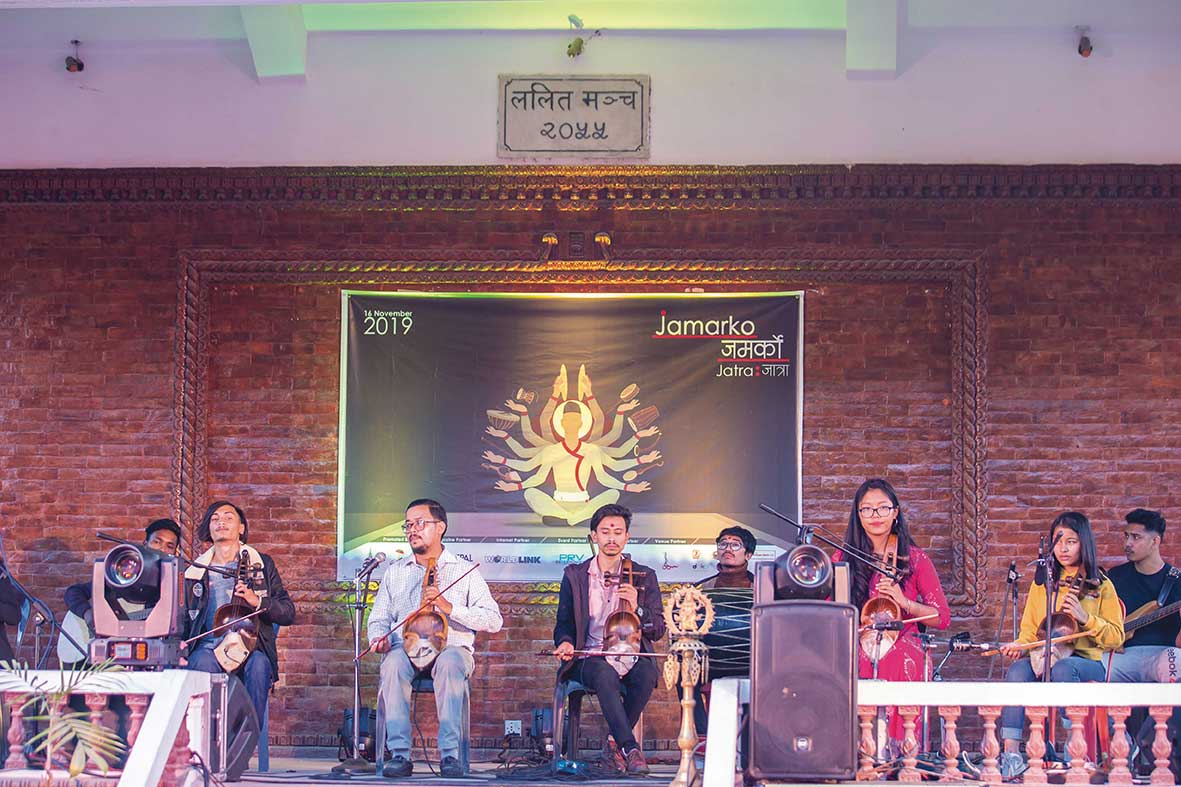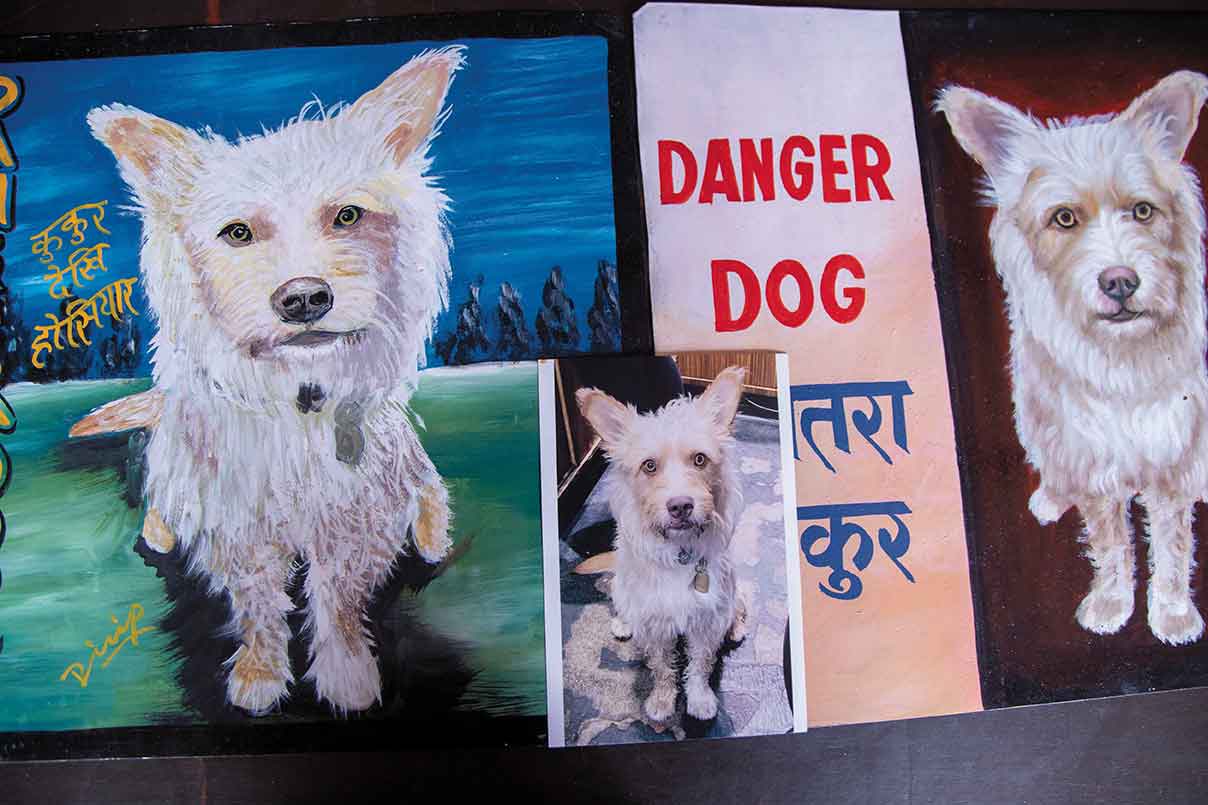When I was approached to write a piece on the musical lifestyle in Kathmandu for this magazine, I had in my head a two-sided story that I could write about - the good and the bad.
I got back into music after a long break during which I had decided to shift my focus to corporate work. So much so that when I got back to the scene my friends were calling me a corporate rocker. Given the fact that Nepalese musicians find it hard to survive solely through their art made me think that it was a good option to have. It was too. But I quit. I now run my own business with my brother and do a lot of music and some consulting too.
 When we founded Albatross, there was no specific reason for doing it. As any other musician from our days will tell you, we started from the ground up. No Internet, no foreign instruments, no MP3s, no tablatures, no YouTube – nadda. It has now evolved from cassette tapes to CDs to MP3s; from Stranger amps to Marshall, from Indian distortion gadgets to whammy pedals and from small local shows to big music festivals. The scene has developed immensely with various genres leading their own distinct scenes and loyal fan following too.
When we founded Albatross, there was no specific reason for doing it. As any other musician from our days will tell you, we started from the ground up. No Internet, no foreign instruments, no MP3s, no tablatures, no YouTube – nadda. It has now evolved from cassette tapes to CDs to MP3s; from Stranger amps to Marshall, from Indian distortion gadgets to whammy pedals and from small local shows to big music festivals. The scene has developed immensely with various genres leading their own distinct scenes and loyal fan following too.
The release of our second album Atti Bhayo was well received by the media, the local music fraternity, by the band members themselves and most importantly by our fans. It took us 9 months of work to get it done. Having to practice, record and schedule gigs with limited power supply and very ad-hoc timing in the studios severely tested our patience, but we got it done.
Having released an album, a lot needed to be done to promote it. A substantial number of shows within and outside Kathmandu, interviews, TV appearances and corporate tie-ups are just some of the ways we adopted. There is never a proper way to go about it and most of it is very spontaneous – as it was for us. Spontaneity is one of the traits that Nepali bands need to have.
The live music scene in Nepal is largely spared off of the glitz and glamour that follows other industries. Kathmandu rockers, although encircled in their own circle of limelight, share the love and respect of a few thousand fans that follow their work and developments. The competition is not stiff but having said that the quality isn’t that great yet either. However, with the influx of a new generation of musicians trained in one of many music schools in Kathmandu and abroad, the talent quotient has increased in recent years.
The music industry has matured so in so that there is now a better understanding of the scale and energy needed to do a rock show. Various stakeholders (band, sound and stage crew, management, sponsors) now understand that it’s more of a team effort rather than an individual one.
Kathmandu means a lot of things to a lot of people. To me it’s a live town with gigs happening all over. Earlier it used to only be a few bars in Thamel that used to have live bands and most bands were limited to just cover songs. There has been a definite evolution in the way that restaurants feature bands and even people who didn’t fathom loud music next to having dinner are more accustomed to the evolving culture.
 For us musicians its been a good spell. Lot of originals songs and albums have been produced in the last few years. Bands who had taken a hiatus have come back, regrouped and joined the road shows. Problems however, still persist – whether it be due to professionalism of organizers, lack of adequate equipment, political instability as well as cultural restrictions.
For us musicians its been a good spell. Lot of originals songs and albums have been produced in the last few years. Bands who had taken a hiatus have come back, regrouped and joined the road shows. Problems however, still persist – whether it be due to professionalism of organizers, lack of adequate equipment, political instability as well as cultural restrictions.
Technology has helped us a great deal. Facebook and YouTube allows songs to be distributed to the masses with little cost to the artist. Small production houses don’t have to depend on equipments that cost millions to make videos and record songs anymore. However, copyright issues and royalty distribution is still a major challenge for us. A lot needs to be done to manage and control copyright infringement and proper accountability of royalty and credit.
With globalization and migration, bands now have opportunities to travel abroad to play for larger audiences. Such international shows not only allow musicians to be exposed to new and larger fan bases but also means good money. However, there are instances where even big artists are denied visas and have to go through administrative hassles and lots of energy and money is lost in terms of promotion and paper work.
Having been in the industry for a decade now, I have seen many bands come and go. Longevity and commitment is one of the most difficult aspects of this industry. One has to understand that bands are made of individuals with their own priorities and such priorities (personal mostly) affect one’s commitment to the cause. Although I highly doubt that Nepalese audiences keep track of who is in and who is out, it won’t make a difference as long as the band exists (I could be wrong though). But after 10 years of playing with various musicians and countless lineup changes its hard to imagine not to be doing what I love doing best. n










